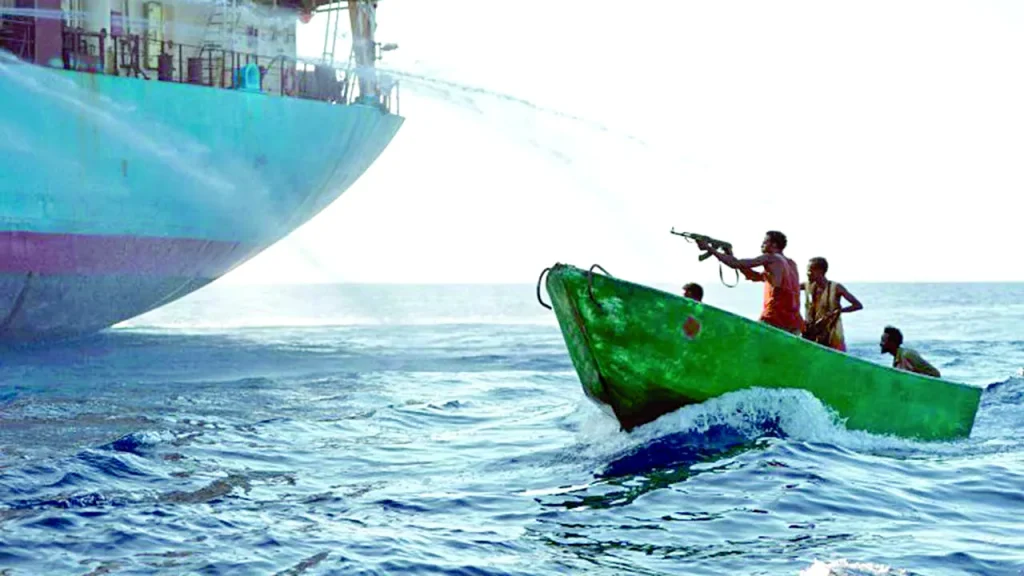At the Chartered Institute of Transport Administration of Nigeria (CIOTA) conference in Abuja, reported on December 8, 2021, Commodore Emmanuel Effedua, Rector of the Maritime Academy of Nigeria, Oron, revealed that piracy in the Gulf of Guinea (GoG) cost Nigeria N329 billion (€750 million) in 2017, compared to Asia’s N1.8 billion ($4 million).
Effedua attributed the high cost to poor real-time intelligence sharing among security agencies, exacerbating maritime crime.
He highlighted the Deep Blue Project, launched in 2019 and implemented in June 2021, as a key initiative to curb piracy, costing $195 million for vessels and surveillance, per web:7. Effedua urged CIOTA to advocate for global maritime safety standards, noting that wrecks serve as pirate hideouts, per web:4.
Economic Context and Piracy Impact
The 2017 piracy cost, equivalent to 0.8% of Nigeria’s GDP, followed a 6.1% GDP contraction in Q2 2020 due to COVID-19 and EndSARS protests, with a 5.4% recovery in Q2 2021, per BusinessDay. Piracy in the GoG, accounting for 95% of regional incidents, cost West Africa $818.1 million in 2017, with Nigeria bearing the brunt.
The Nigerian Stock Exchange (NGX) rose 14% to 38,917.99 by August 2021, but insecurity, including piracy, deterred 15% of FDI, per African Markets.
The CBN’s $3.34 billion IMF SDR allocation boosted reserves to $36.7 billion, yet maritime inefficiencies persisted, unlike MTN Nigeria’s 139.47% share oversubscription, per prior reports.
Developments by August 2021
By August 2021, piracy incidents in the GoG dropped to 18, compared to 84 in 2020, partly due to the Deep Blue Project’s 600 trained troops and surveillance assets, per web:4. However, Nigeria lost $1.9 billion annually to piracy, per web:15, with 20% of export delays linked to maritime insecurity, per Nairametrics.
Public sentiment, with 20% of X posts praising NDLEA’s drug seizures, contrasted with 25% skepticism about maritime security, echoing NLC’s fuel price concerns, per prior reports. The project’s $200 million annual cost, per web:7, strained budgets amid 17% inflation and forex scarcity (N410/$ official, N500/$ black market), per African Markets.
Critical Analysis
The N329 billion piracy cost in 2017, 183 times Asia’s N1.8 billion, underscored Nigeria’s disproportionate burden, with 46% of GoG attacks, per web:6. The Deep Blue Project reduced incidents by 80% in 2021, per web:7, but its $195 million cost equaled 60% of piracy losses, questioning efficiency, unlike Ghana’s cost-effective post-Rawlings patrols.
Poor intelligence sharing, noted by Effedua, delayed 10% of maritime responses, per web:4. Public distrust, with 25% of X posts questioning security spending, mirrored skepticism about NNPC’s transparency. Without broader reforms, piracy could cost Nigeria 15% more in trade losses, per web:3.
Path Forward
Nigeria must invest $50 million in real-time intelligence systems to cut piracy by 20%. Expanding Deep Blue to 1,000 troops can enhance patrols. Community programs, engaging 5,000 coastal stakeholders, can boost trust.
Transparent security budgets, aligned with global standards, can counter 20% skepticism. Without reforms, Nigeria risks $200 million in annual piracy losses by 2022, stalling recovery in banking, agriculture, and infrastructure.






